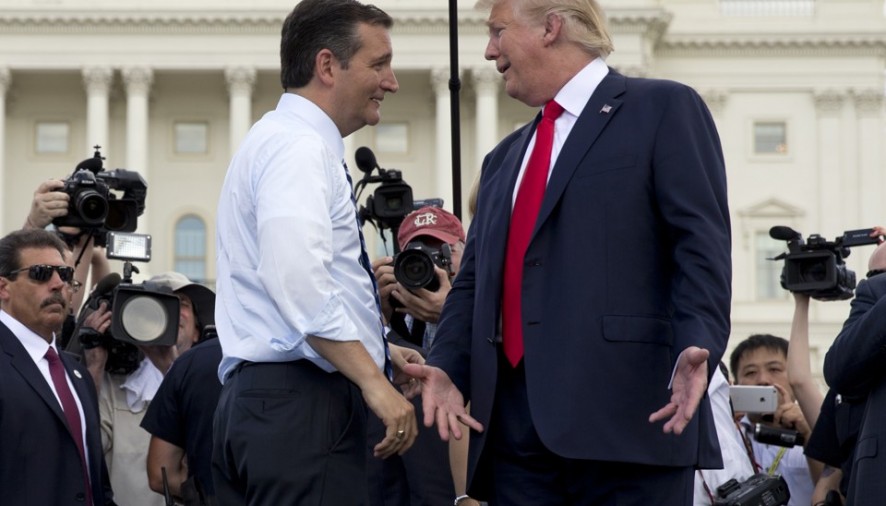Gene editing approved for first time in UK
In a world first, UK scientists have been granted approval by the Human Fertilisation and Embryology Authority (HFEA) to genetically modify human embryos to provide a deeper understanding of the earliest stages of human life. Researchers will look to alter genes to investigate what roles they have, how they may guide our early development and what goes wrong in cases of infertility and miscarriage. The decision has attracted fierce debate and controversy as many feel that it is opening the door to the world of designer, or genetically modified, babies. The HFEA have stressed, however, that ‘ethical implications have been carefully considered’.
Jonny Chard
Cruz beats Trump in Iowa caucus
Donald Trump came second place in Iowa Republican caucuses, the first of votes that will determine the presidential candidacy for both parties. Trump’s rival, Texas Senator Ted Cruz, won 28% of the vote, replacing Trump as the presidential frontrunner. The caucuses determine which candidates will stand for the two main parties in the November election. Hilary Clinton won the majority of votes in the Democrat vote, with 22 delegates in total, beating her rival Bernie Sanders in a ‘virtual tie’. The closeness in the voting in Iowa is likely to be repeated across the country, with support for the leading candidates being too close currently to distinguish between.
Zoe Bancroft
US Scientists: Zika Vaccine ‘A Decade Away’
A vaccine for the Zika virus sweeping across the Americas could be over ten years away, according to scientists in Texas. This news is of great concern to the World Health Organisation (WHO), who have predicted over 3 to 4 million new cases of the virus in the next 12 months alone. Passed on by the Aedes Mosquito, the pathogen has shown a clear connection with Microcephaly, a disease which results in the underdevelopment of babies’ brains. In 2014 the number of babies affected by Microcephaly in Brazil was approximately 150, but since October this figure has risen to almost 4,000. With the Rio Olympics only five months away, the WHO is also worried about a possible global pandemic.
Mike Johansson
UN rule Julian Assange “unlawfully detained”.
A UN panel has ruled that the Wikileaks founder, Julian Assange, been “unlawfully detained”. Mr Assange claimed asylum in the Ecuadorian embassy in 2012 in order to avoid extradition to Sweden over alleged sexual assault. In 2014, Assange launched a complaint to the UN. He said that he could not leave the embassy without being arrested. Assange had stated that he would accept arrest if the UN panel ruled against him. He also said that if the UN panel voted in his favour, the warrant for his arrest should be dropped. London Metropolitan Police have said that Assange will still be held if he does leave the embassy.

